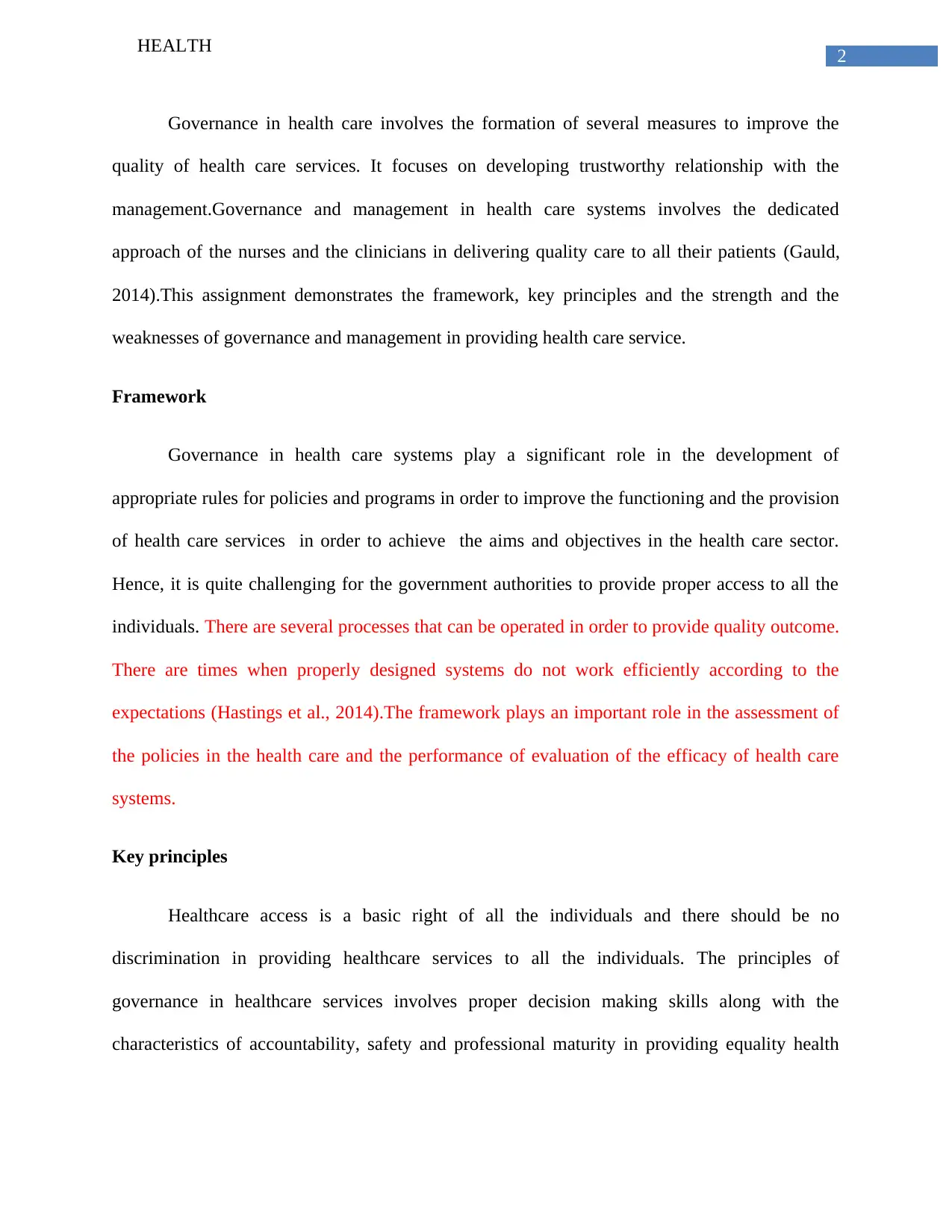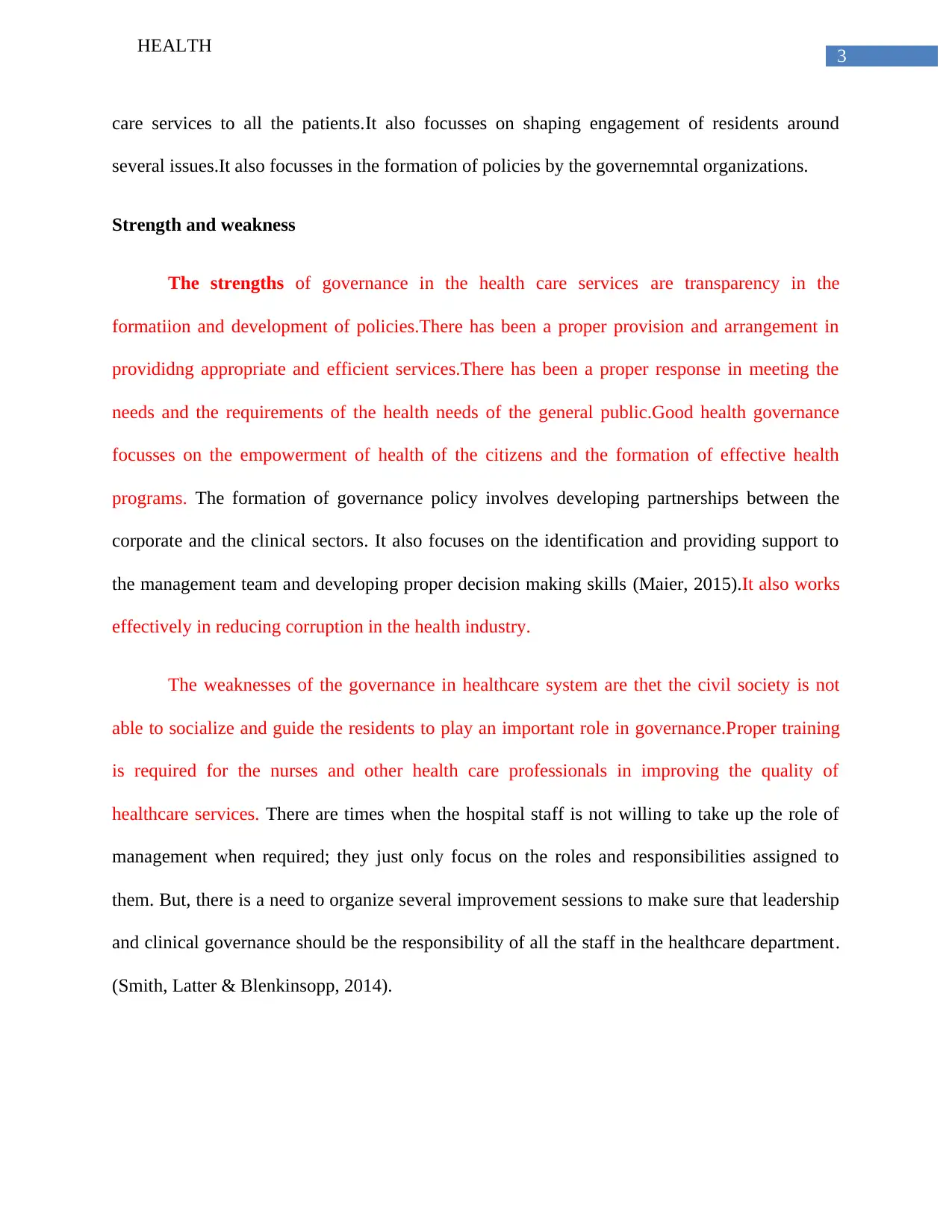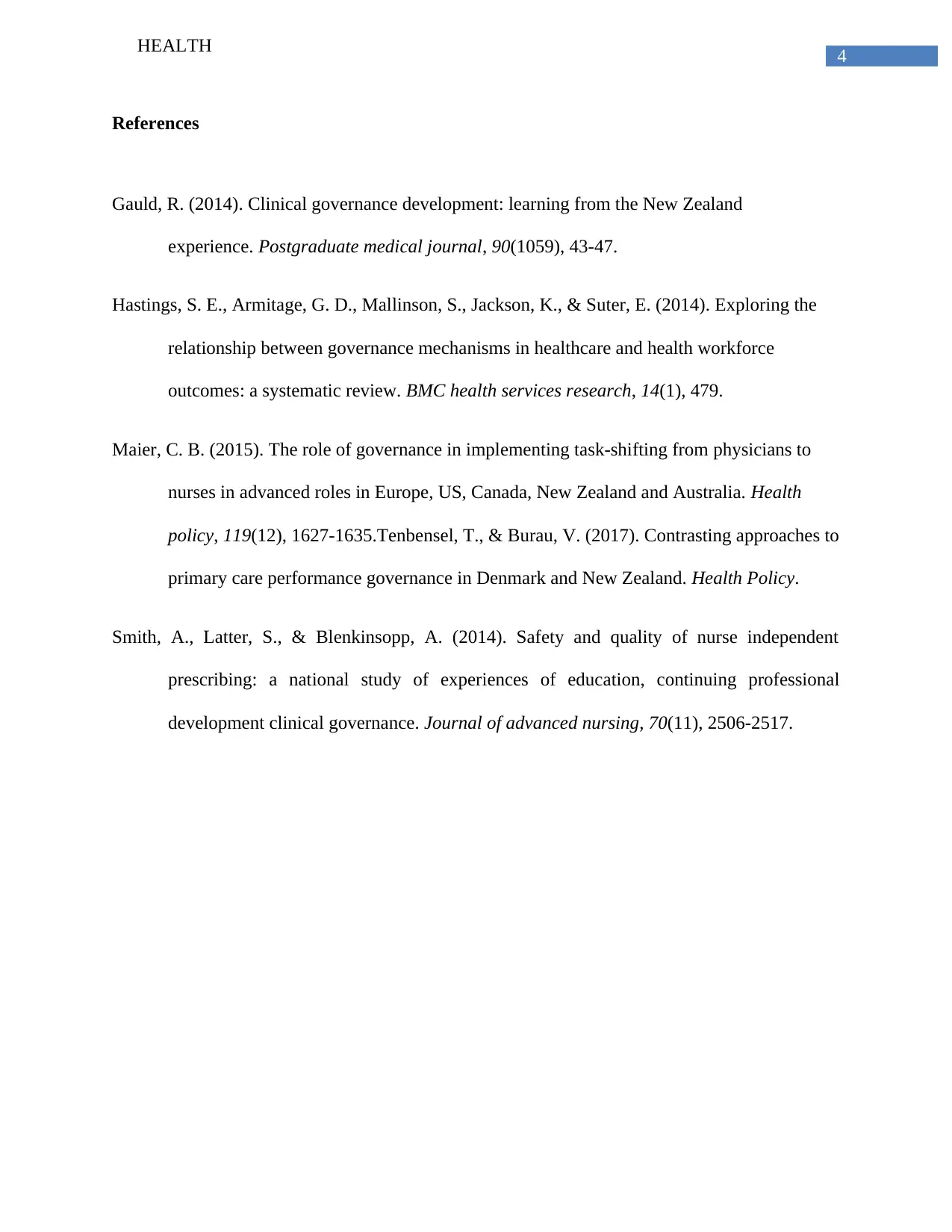University Healthcare Governance and Management Report Evaluation
VerifiedAdded on 2020/04/07
|4
|766
|168
Report
AI Summary
This report examines governance and management in healthcare, focusing on frameworks, key principles, strengths, and weaknesses. It highlights the importance of governance in establishing rules, policies, and programs to improve healthcare service delivery and achieve sector objectives. The report discusses the challenges in providing proper access to all individuals and the significance of well-designed systems. Key principles such as healthcare access as a basic right, decision-making skills, accountability, and patient safety are emphasized. Strengths include transparency, efficient service provision, and effective programs, while weaknesses include the role of civil society, training needs, and staff willingness to embrace management responsibilities. The report references key scholarly articles to support its analysis.
1 out of 4











![[object Object]](/_next/static/media/star-bottom.7253800d.svg)